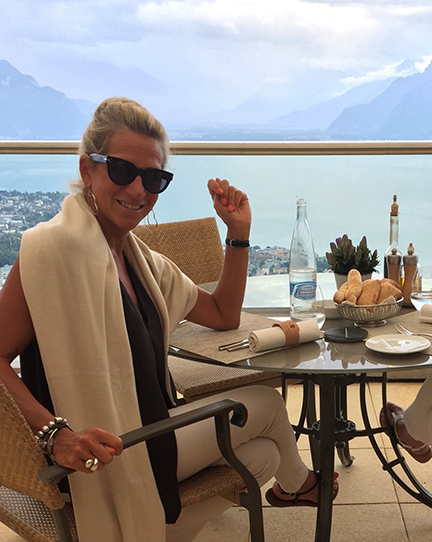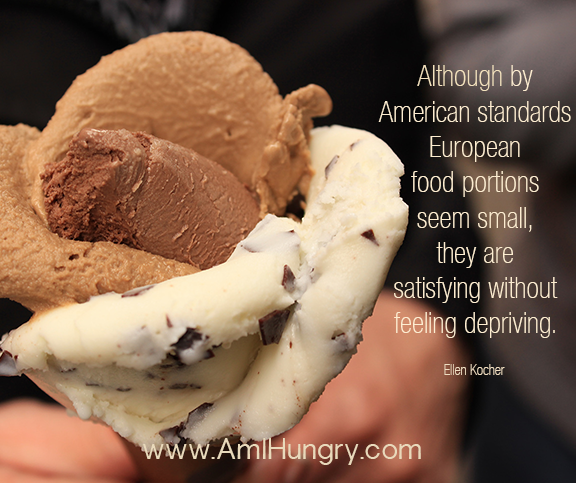 I was raised in the United States but have lived in Switzerland for over 30 years and have had the opportunity to travel all over Europe. I think that curious observation of European eating habits is both interesting and useful in our journey to eat more mindfully.
I was raised in the United States but have lived in Switzerland for over 30 years and have had the opportunity to travel all over Europe. I think that curious observation of European eating habits is both interesting and useful in our journey to eat more mindfully.
It’s about time!
Many Europeans pride themselves in creating and enjoying delicious food. They tend to eat slower and really appreciate what they are eating. Numerous studies have confirmed my observation that when we sit down to enjoy longer meals in company of family or friends and focus on our food, we enjoy it more and eat less. Generally speaking, in social, business, school, and home life in Europe, one does not eat alone but invites others to share meals and takes the time to savor both the food and the moment.
What can we learn?
Nurturing a healthy relationship with food includes prioritizing the time we spend eating and sharing the experience with others. Observe your own patterns. How much time do you spend eating your meals? Do you eat alone? Do you eat fast? Do you feel guilty for taking time to eat?
 Bigger is not better!
Bigger is not better!
I moved to Rome as a University student in the 80’s. My fellow students and I were shocked at the tiny sizes of things like espresso and gelato. We were used to unlimited refills and baseball sized ice cream scoops rather than the Italian golf ball size scoops! Although by American standards European food portions are small, they are satisfying without feeling depriving.
What can we learn?
What if rather than judging the smaller portions as “not enough,” we raise our awareness about how much will truly serve us best right now. Who or what determines the size of your portions? Do you ever think “that’s not enough” before even beginning to eat? What happens when you serve or are served smaller portions?
“Proud to be…”
On average, Europeans eat more fresh, unprocessed, and organic foods. There is a genuine cultural concern about where food comes from. This is not because it is a trendy fad; it is a normal part of many cultures. Europeans pride themselves on milk and cheese that are not over processed, meat and poultry that are fresh daily, and produce that is mostly grown locally. Most Europeans would rarely think of buying day-old bread.
What can we learn?
Quality is not a trend, but a degree of excellence we are proud to give our food, always. I think we can be inspired by European cultural pride and seek out our own quality, minimally processed, local fresh foods that we can be both proud and pleased to eat. What grade would you give your food in terms of excellence? Do you know the ingredients and place of origin of most of your foods? Are you proud of what you eat?
Bon Appétit!
I love America and I love Europe, and I feel blessed living somewhere that seems like a middle place between the two worlds. Every geographic region has its own culture and there isn’t a universally “healthy” or “best” way to eat. I do believe, however, that through observing international cuisines and cultures in terms of quality, quantity, and eating practices we can be inspired in our journey to become more mindful.
What do you think? What observations have you made? Bon Voyage!

2 thoughts on “What can we learn about eating from Europeans?”
Excellent blog. I totally agree about the horribly unhealthy relationship most of the US has with food, although there are movements trying to change that. I happen to work with a concept that does just that. But whereas you’d like Americans to learn from European habits, I have the impression that just the opposite is happening and European children are being seduced massively by industrial foods with addictive ingredients and less and less nutritional value. From over here we criticize what the US does and then go and do just the same. It’s a slippery slope!
Comments are closed.